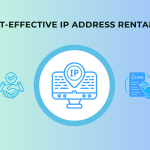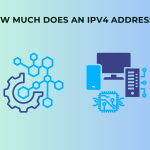In today’s digital era, businesses rely heavily on internet connectivity to run their operations smoothly. One crucial aspect of this connectivity is IP addressing. With the depletion of Leasing IPv4 Addresses, companies face a challenge in acquiring sufficient resources to support their networks. While purchasing IPv4 addresses remains an option, leasing them is becoming an increasingly viable and cost-effective alternative. This article explores the benefits of leasing IPv4 addresses and how businesses can optimize their network strategies through smart IP management.
Understanding Leasing IPv4 Addresses
IPv4 addresses are the numerical labels assigned to devices connected to the internet. Due to the exhaustion of available IPv4 addresses, many businesses are now exploring ways to acquire them. Leasing IPv4 addresses offers a flexible solution, allowing businesses to rent addresses instead of purchasing them outright. This approach reduces costs while ensuring scalability as companies expand their networks.
Why Businesses Should Lease IPv4 Addresses Instead of Buying
Cost-Effective Solution
Buying IPv4 addresses can be a significant investment, with prices continuing to rise due to scarcity. Leasing, on the other hand, provides a more affordable way to obtain the required IPs without large upfront costs.Flexibility and Scalability
Leasing allows businesses to scale their IP resources based on demand. Whether a company needs additional IPs for seasonal growth or temporary projects, leasing provides the adaptability required without long-term commitments.Quick Availability
Purchasing IPv4 addresses can be time-consuming, involving regulatory approvals and ownership transfers. Leasing offers immediate access to IP resources, enabling businesses to deploy their networks without delays.Avoiding Depreciation
IP addresses are valuable assets, but market fluctuations can affect their worth. Leasing helps businesses avoid the risks of asset depreciation, ensuring cost efficiency over time.
How IPv4 Address Classes Affect Leasing Decisions
Before leasing or buying IPv4 addresses, it’s essential to understand IPv4 address classes. IPv4 addresses are divided into five classes (A, B, C, D, and E), each serving different purposes:
Class A: Suitable for large organizations requiring a vast number of IP addresses.
Class B: Used by medium-sized enterprises needing a moderate amount of addresses.
Class C: Ideal for smaller networks and businesses with limited IP needs.
Class D & E: Reserved for special purposes like multicast and research.
Understanding these classes can help businesses choose the right leasing option that meets their network requirements efficiently.
Who Owns IP Addresses, and How Can Businesses Acquire Them?
Many businesses wonder who owns IP addresses and how they can be acquired. The ownership of IPv4 addresses is managed by regional internet registries (RIRs) such as ARIN (North America), RIPE NCC (Europe), and APNIC (Asia-Pacific). These organizations allocate IP addresses to businesses, internet service providers (ISPs), and governments.
However, with the IPv4 shortage, many companies obtain addresses from private markets where brokers facilitate buying and leasing. Understanding ownership structures can help businesses make informed decisions about leasing or purchasing IPs.
The Role of the IPv4 Address Marketplace in Leasing
The IPv4 address marketplace is a dynamic ecosystem where organizations buy, sell, and lease IP addresses. Businesses looking to lease IPv4 addresses should work with reputable brokers and platforms that ensure compliance with legal and technical regulations. The marketplace provides various leasing options, allowing businesses to secure the right number of IPs at competitive prices.
How to Lease IPv4 Addresses for Business Growth
If your business is considering IPv4 leasing, here are the key steps to follow:
Assess Your Needs: Determine the number of IPv4 addresses required based on your business operations.
Choose a Reliable Provider: Work with trusted platforms to lease IPv4 addresses securely.
Verify Address Legitimacy: Ensure that the leased IPs are clean and not blacklisted to avoid security risks.
Sign an Agreement: Establish clear terms regarding lease duration, pricing, and renewal conditions.
Implement and Monitor Usage: Deploy the leased IPs effectively while monitoring network performance and security.
Conclusion
Leasing IPv4 addresses is a strategic solution for businesses seeking cost-effective, scalable, and flexible network expansion. By understanding IPv4 address classes and the ownership structure of IP addresses, companies can make informed decisions to optimize their digital infrastructure. Whether you are looking to lease IPv4 addresses for a short-term project or long-term growth, the right approach will ensure efficiency and reliability in your network operations.
If your business needs reliable IPv4 solutions, consider exploring leasing options to enhance your connectivity while minimizing expenses. Leasing IPv4 is not just a necessity but a smart investment for the future.
FAQs About Leasing IPv4 Addresses
IPv4 address leasing is a process where businesses rent IP addresses from a provider instead of purchasing them outright. This allows companies to access the IP resources they need without significant upfront costs.
Leasing IPv4 addresses is more cost-effective, flexible, and scalable. It also provides quick access to IP resources and helps businesses avoid the risks of asset depreciation.
IPv4 address classes (A, B, C, D, and E) determine the size and purpose of the IP block. Businesses should choose a class that aligns with their network requirements to optimize leasing decisions.
Buying is ideal for long-term needs,IPv4 addresses are owned by regional internet registries (RIRs) like ARIN, RIPE NCC, and APNIC. Businesses can acquire them through these organizations or private marketplaces. offering ownership and stability. Leasing suits short-term projects or businesses with budget constraints.
Businesses should work with reputable providers and verify that the leased IPs are clean, not blacklisted, and compliant with legal regulations.






